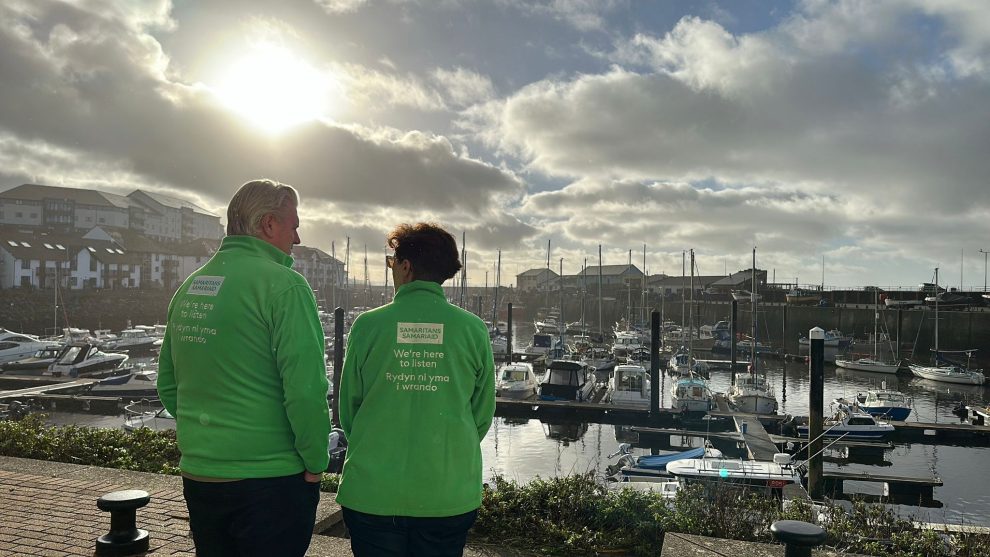With Christmas fast approaching, for many, it can be a time of anxiety, of isolation and loneliness and fear of having no-one to talk to. Samaritans Cymru offer a lifeline to anyone in this position and the service in Wales is offered in the preferred language of the caller, be that Welsh or English.
Samaritans is one of the most recent organisations to have received the Cynnig Cymraeg (Welsh Offer) from the Welsh Language Commissioner. This is the official recognition from the Commissioner and is given to organisations that have collaborated with the Commissioner’s officers to plan their Welsh language provision.
According to Neil Ingham, Executive Director for Samaritans Cymru, delivering the services bilingually is crucial to meet the needs of their callers,
“In Wales, we know how important it is to access support in your first language and we work to reach as many Welsh speakers as we can. We are proud to receive the Cynnig Cymraeg recognition, but we’re determined to do everything possible to improve our Welsh Language Offer to anybody who needs Samaritans support.
“If you would like emotional support in Welsh, our Welsh language line is free to call, even from a phone with no credit and the number won’t show up on your phone bill. Our main message to everyone across Wales, especially at this time of year, is that reaching out for help is not a sign of weakness, it’s a sign of strength.”
Over the past year Samaritans Cymru answered 130,000 calls for help, equating to one call every four minutes. There are many reasons for calling but the main ones are due to mental health issues, family disputes, isolation and loneliness, relationship problems and physical illness.
Damien had been struggling with depression and anxiety for ten years, and a year ago, he decided he couldn’t go on anymore, until he called Samaritans,
“It’s not that I couldn’t speak to my girlfriend or my dad who were really supportive but when you’re wrapped up in it all it’s very difficult to think rationally and think of those people.
“That morning the Samaritans number popped up, so in that moment I thought ‘what have I got to lose?’ I can’t remember the contents of the conversation, all I know is that after I came off the phone, I no longer felt that way. I still have bad days every now and then, but I’m in a much better place. These feelings aren’t permanent. I’m looking forward to getting on with my life and I’m so glad I made that call.”
According to Welsh Language Commissioner, Efa Gruffudd Jones, the service provided by organisations like Samaritans Cymru is vitally important especially over the Christmas period, she said:
“It is easy to forget, as many of us get into the Christmas spirit, that many more will be dealing with difficult issues due to various circumstances. The value of having a friendly voice at the end of a call, willing to listen and talk with you, cannot be underestimated.
“It is a big step to make that call and it is important then that the caller can speak in their preferred language, ensuring it is as comfortable as possible. I would like to congratulate Samaritans Cymru, not only on receiving the Cynnig Cymraeg but for the excellent work the charity does throughout the year.”
Lynda is the Samaritans Bangor Branch Director and a listening volunteer with Samaritans Cymru,
“Using my first language is essential to me in my everyday life as it is for many across Wales, especially those living in rural and farming communities. As a listening volunteer for the Welsh language helpline, I can assist those in need while also being able to communicate with them in their preferred language. Speaking in Welsh helps them feel more at ease and comfortable while we talk through what is troubling them.”
The Welsh language helpline is free to call every day between 7pm – 11pm on 0808 164 0123.




















